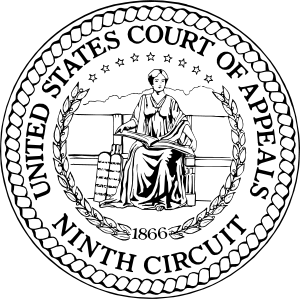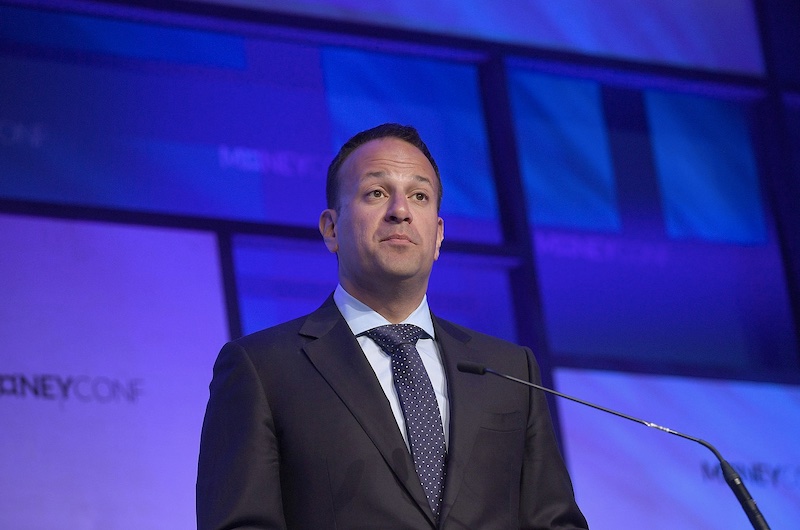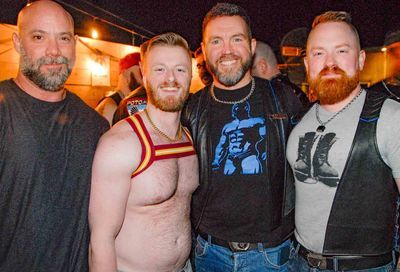BREAKING: Ninth Circuit Passes on Further Review of Prop 8 Case, Setting Up Appeal to Supreme Court
By Chris Geidner on June 5, 2012
The federal appeals court hearing the challenge to California’s Proposition 8 passed on taking another look at the ruling. The decision today by the U.S. Court of Appeals for the Ninth Circuit not to reconsider the appeal, in which a three-judge panel had found the amendment to be unconstitutional in February, starts a 90-day clock for the proponents to decide whether they will ask the Supreme Court to hear the case. [NOTE: They will appeal. See update below.]
“A majority of the panel has voted to deny the petition for rehearing en banc,” the court wrote.
 The proponents of Proposition 8, who are defending the 2008 enactment in court, had requested the en banc rehearing. The court did not give a reason for its decision. Under the court’s rules, a majority of the 26 active judges on the court would have needed to agree to grant the rehearing.
The proponents of Proposition 8, who are defending the 2008 enactment in court, had requested the en banc rehearing. The court did not give a reason for its decision. Under the court’s rules, a majority of the 26 active judges on the court would have needed to agree to grant the rehearing.
[UPDATE @ 6:45P: The attorney for the proponents of Proposition 8, Charles Cooper, tells Metro Weekly, “We do plan to seek Supreme Court review.”
In a statement from the Alliance Defense Fund, which has backed the proponents’ defense of the law, Cooper added, “We’re pleased to petition the Court to hear this case. The lower court opinions were little more than an attack on the character and judgment of millions of Californians, and those decisions essentially ignored all relevant Supreme Court and appellate court precedent. We are hopeful and confident that the Supreme Court will review the 9th Circuit’s decision.”]
Ted Olson, an attorney for the plaintiffs challenging Proposition 8, said of the impact of today’s decision to their challenge to Proposition 8, “We’re not to the end of the line yet, but we’re vastly, vastly closer.”
The court put its decision on hold pending any Supreme Court appeal: “The mandate is stayed for ninety days pending the filing of a petition for writ of certiorari in the Supreme Court. If such a petition is filed, the stay shall continue until final disposition by the Supreme Court.”
Assuming that the proponents will seek Supreme Court review of their appellate loss, they would [The proponents will] file a petition for a writ of certiorari. The plaintiffs and the state defendants — who have opposed Proposition 8’s constitutionality — as well as outside groups and individuals would then be able to file a response to the proponents’ filing.
“We’ll oppose that,” Olson says, of any request by the proponents to seek Supreme Court review.
The Supreme Court, which generally recesses for the summer by late June, would then consider the petition after that briefing is completed, likely once the justices return in the fall. By Supreme Court practice, four of the justices would need to want to hear the case in order for the court to accept it.
If the court accepts review of the case that was brought by the American Foundation for Equal Rights in 2009, then a full briefing schedule and oral argument would be set. If the court denies review, the Ninth Circuit’s decision will stand and Proposition 8 will be unconstitutional — which would enable same-sex couples to marry in California once again.
In a statement, AFER co-founder Chad Griffin said, “Today’s order is yet another federal court victory for loving, committed gay and lesbian couples in California and around the nation. The final chapter of the Proposition 8 case has now begun. Should the United States Supreme Court decide to review the Ninth Circuit’s decision in our case, I am confident that the Justices will stand on the side of fairness and equality.”
The appellate decision striking down Proposition 8 was based upon the reasoning of the Supreme Court in the 1996 case of Romer v. Evans, where the court struck down Colorado’s Amendment 2 as unconstitutional. Amendment 2 had prohibited state and local entities from passing sexual orientation protections. The U.S. Supreme Court struck Colorado’s Amendment 2 down as a violation of the Fourteenth Amendment’s equal protection clause because the amendment’s aim was “not to further a proper legislative end but to make [LGB people] unequal to everyone else.”
In writing the opinion for the Ninth Circuit in the Proposition 8 appeal, Perry v. Brown, Judge Stephen Reinhardt noted, “Proposition 8 is remarkably similar to Amendment 2.”
Reinhardt, joined by Judge Michael Daly Hawkins, concluded that “the People of California may not, consistent with the Federal Constitution, add to their state constitution a provision that has no more practical effect than to strip gays and lesbians of their right to use the official designation that the State and society give to committed relationships ….”
Judge N. Randy Smith had dissented in that decision, and he — along with Judges Diarmuid F. O’Scannlain, Jay Bybee and Carlos Bea — dissented to today’s decision not to reconsider the appeal. Judge O’Scannlain wrote a brief dissent to the decision not to hear the case en banc, in which he was joined by Bybee and Bea.
In part, he wrote, “A few weeks ago, subsequent to oral argument in this case, the President of the United States ignited a media firestorm by announcing that he supports same-sex marriage as a policy matter. Drawing less attention, however, were his comments that the Constitution left this matter to the States and that ‘one of the things that [he]’d like to see is — that [the] conversation continue in a respectful way.'”
“Today our court has silenced any such respectful conversation,” O’Scannlain wrote in dissent.
Judges Reinhardt and Hawkins wrote an brief note concurring in the decision that their original opinion would stand and that they were “puzzled” by O’Scannlain’s dissent.
Today’s decision also means that the expected request by the proponents of Proposition 8 to hear the Perry appeal will be before the Supreme Court for consideration at roughly the same time that any appeal of the cases challenging Section 3 of the Defense of Marriage Act — Gill v. Office of Personnel Management and Massachusetts v. United States — will be before the court for consideration. The First Circuit in Boston, held on May 31 that Section 3 of the DOMA is unconstitutional, relying, in part, on Romer and similar cases that preceded it.
In a conference call with reporters, one of the other attorneys for the plaintiffs, David Boies, said, “The reasoning of both opinions is essentially the same.”
READ the opinion, dissent and concurrence: 11-16577_Documents.pdf
[NOTE: This post was updated and expanded, with the final update at 2:20 p.m., following a conference call AFER held with reporters following the decision.]
Ireland’s Gay Prime Minister, Leo Varadkar, Resigns
The country's youngest and first openly gay prime minister steps down ahead of expected political losses in upcoming elections.
By John Riley on March 20, 2024 @JRileyMW
Leo Varadkar, Ireland's youngest, first openly gay, and first multiracial prime minister, announced on March 20 that he is stepping down from office.
Varadkar resigned as leader of the Fine Gael political party and will resign as prime minister -- or taoiseach -- once a successor is named.
Standing on the steps of the Government Buildings in Dublin, the 45-year-old said he was stepping down for "personal and political" reasons, "but mainly political," reported The Guardian.
"I believe this government can be re-elected," Varadkar said. "I believe a new taoiseach will be better placed than me to achieve that -- to renew and strengthen the top team, to refocus our message and policies, and to drive implementation. After seven years in office, I am no longer the best person for that job."
Senate Confirms Out Lesbian to 4th Circuit Court of Appeals
With Nicole Berner's confirmation, President Biden ties Obama’s record for appointing the most LGBTQ federal judges in history.
By John Riley on March 21, 2024 @JRileyMW
The U.S. Senate has confirmed Nicole Berner to the 4th U.S. Circuit Court of Appeals by a 50-47 vote, with all Republicans and Democratic Sen. Joe Manchin (W.V.) voting against her nomination.
Berner’s confirmation makes her the first out lesbian confirmed to the 4th Circuit -- which covers Maryland, Virginia, West Virginia, North Carolina, and South Carolina -- and only the sixth LGBTQ judge confirmed to any appeals court in the country.
It also makes her the eleventh LGBTQ federal judge nominated by President Joe Biden, who ties a record with President Obama for appointing the most LGBTQ federal judges in history.
Support Metro Weekly’s Journalism
These are challenging times for news organizations. And yet it’s crucial we stay active and provide vital resources and information to both our local readers and the world. So won’t you please take a moment and consider supporting Metro Weekly with a membership? For as little as $5 a month, you can help ensure Metro Weekly magazine and MetroWeekly.com remain free, viable resources as we provide the best, most diverse, culturally-resonant LGBTQ coverage in both the D.C. region and around the world. Memberships come with exclusive perks and discounts, your own personal digital delivery of each week’s magazine (and an archive), access to our Member's Lounge when it launches this fall, and exclusive members-only items like Metro Weekly Membership Mugs and Tote Bags! Check out all our membership levels here and please join us today!
The Magazine
-
Most Popular
 D.C. Courts Pop-Up Businesses Ahead of WorldPride
D.C. Courts Pop-Up Businesses Ahead of WorldPride  Judge Blocks Ohio's Anti-Transgender Bans
Judge Blocks Ohio's Anti-Transgender Bans  Lawsuit Against New York AG Letitia James Dismissed
Lawsuit Against New York AG Letitia James Dismissed  For Don Mancini, Chucky is So Much More Than a Killer Toy
For Don Mancini, Chucky is So Much More Than a Killer Toy  Cher to be Inducted in the Rock & Roll Hall of Fame
Cher to be Inducted in the Rock & Roll Hall of Fame  George Santos, Duped by NAMBLA Prank, Exits Race for Congress
George Santos, Duped by NAMBLA Prank, Exits Race for Congress  Gay Furries Hack Right-Wing Network Real America's Voice
Gay Furries Hack Right-Wing Network Real America's Voice  California Mayor Recalled After Coming Out as Transgender
California Mayor Recalled After Coming Out as Transgender  Grindr is Being Sued for Sharing HIV Statuses
Grindr is Being Sued for Sharing HIV Statuses  Ralph Fiennes and Indira Varma Soar in STC's 'Macbeth' (Review)
Ralph Fiennes and Indira Varma Soar in STC's 'Macbeth' (Review)
 George Santos, Duped by NAMBLA Prank, Exits Race for Congress
George Santos, Duped by NAMBLA Prank, Exits Race for Congress  Grindr is Being Sued for Sharing HIV Statuses
Grindr is Being Sued for Sharing HIV Statuses  Judge Blocks Ohio's Anti-Transgender Bans
Judge Blocks Ohio's Anti-Transgender Bans  D.C. Courts Pop-Up Businesses Ahead of WorldPride
D.C. Courts Pop-Up Businesses Ahead of WorldPride  Cher to be Inducted in the Rock & Roll Hall of Fame
Cher to be Inducted in the Rock & Roll Hall of Fame  Texas Governor Wants to Ban Trans People from Being Teachers
Texas Governor Wants to Ban Trans People from Being Teachers  For Don Mancini, Chucky is So Much More Than a Killer Toy
For Don Mancini, Chucky is So Much More Than a Killer Toy  LGBTQ Teen Sues School Over Suspension For Rap Lyrics
LGBTQ Teen Sues School Over Suspension For Rap Lyrics  California Mayor Recalled After Coming Out as Transgender
California Mayor Recalled After Coming Out as Transgender  Lawsuit Against New York AG Letitia James Dismissed
Lawsuit Against New York AG Letitia James Dismissed
Scene
Metro Weekly
Washington's LGBTQ Magazine
P.O. Box 11559
Washington, DC 20008 (202) 638-6830
About Us pageFollow Us:
· Facebook
· Twitter
· Flipboard
· YouTube
· Instagram
· RSS News | RSS SceneArchives
- "We use cookies and other data collection technologies to provide the best experience for our customers. You may request that your data not be shared with third parties here: "Do Not Sell My Data
Copyright ©2024 Jansi LLC.









